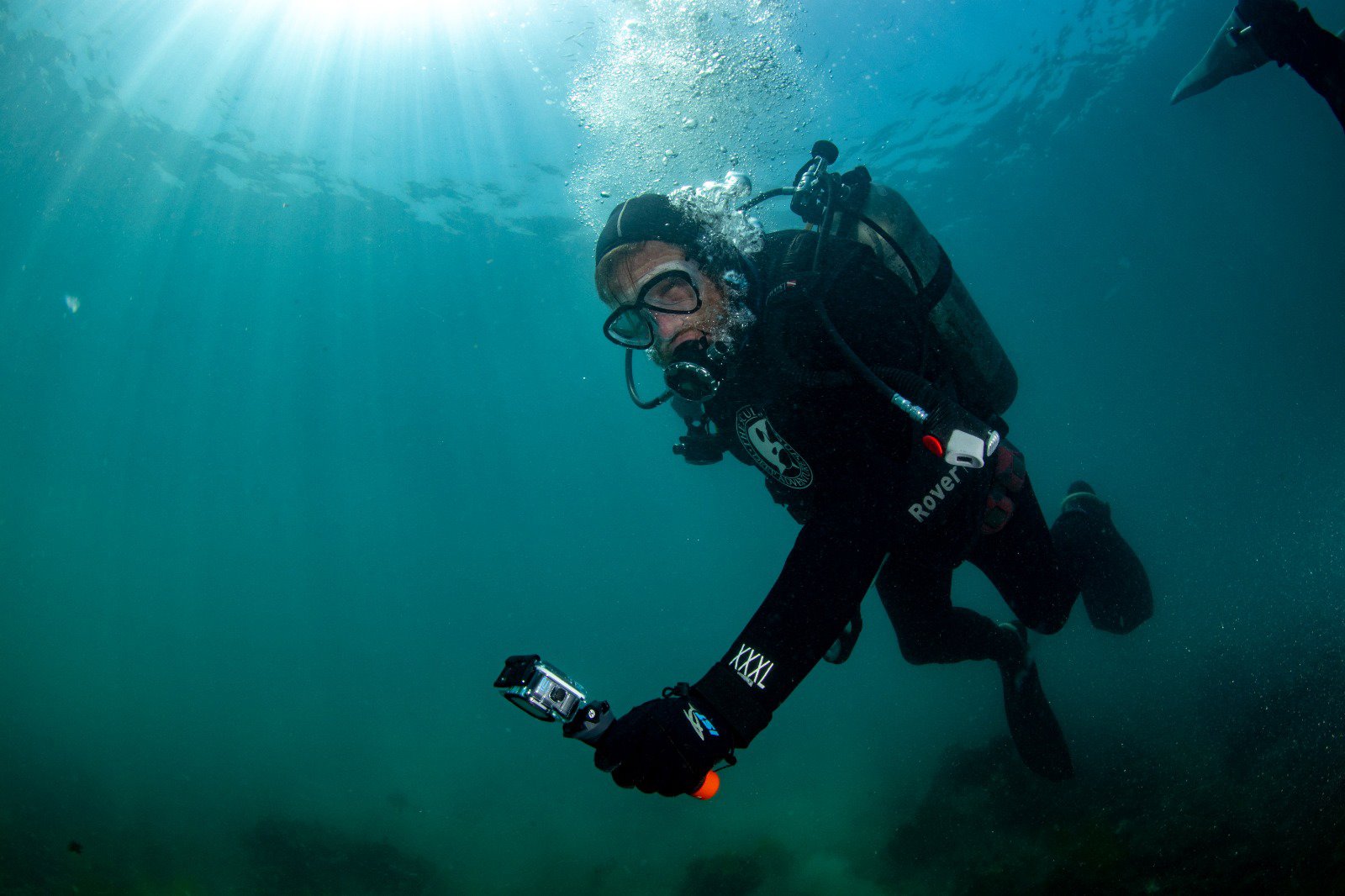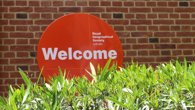Human-induced environmental change and its impacts can be seen globally and are often most starkly felt by those who directly rely up nature for their livelihood.
The Haenyeo divers of the Jeju Island of South Korea are one such community. Haenyeo in Korean translates to “sea women”. These women make their livelihood by harvesting sea life including kelp, mollusks and seaweed from coral reefs by free diving, without the use of modern technology.
However in recent years the Haenyeo, who have dived off Jeju their whole lives, have observed changes to the environment in which they work which threaten to significantly impact their way of life.
Professor Niki Alsford, Professor of Anthropology and Human Geography at the University of Central Lancashire, first met members of the Haenyeo community while visiting Jeju National University in 2019.
“I was having conversations with these group of women who just came out of the sea. I had an awareness and curiosity of what it was they were doing so it was just great to have a conversation. This led me to want to learn more.”
The Haenyeo possess a wealth of traditional knowledge about their environment and how it is changing. Working directly alongside the Haenyeo in a research project funded by an RGS-IBG Ralph Brown Expedition Award, Niki sought to combine this knowledge with ecological baseline modelling to try to help answer some of the key questions Haenyeo communities are facing today around their changing environment, and in turn to better understand how science and local knowledge can work together.
During April and May 2024, Niki spent three weeks on Jeju working and diving with the Haenyeo.
“It’s nonstop. Decisions about when to dive are dependent on wind and current and can be at short notice. And when not diving these women, who are their 40s to 80s, also run farms. My cameraman, a professional diver, and I were doing all sorts of work we’ve never done before to help out.”
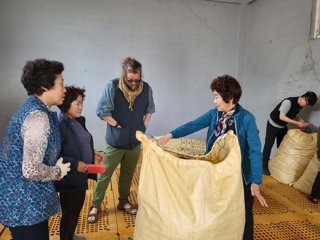
By taking photographs and 3D scans of the coral reefs, Niki and the team were able to produce a snapshot of the reefs’ present condition.
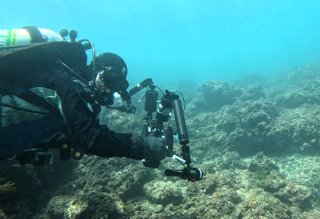
“From the photographs the women were identifying things they’d never seen before. What we have started to notice is more tropical coral appearing at a higher latitude, facilitated by a warmer ocean.”
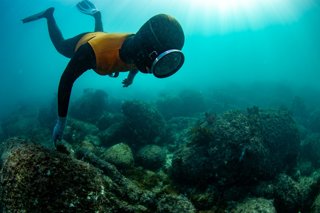
“This raised a lot of questions. They were saying ‘We don't know what to do, we can't harvest it, because we don't know what it is. So we are having to harvest around it. And it seems to be growing and what we do harvest seem to be getting less'.”
As well as new species of coral, the Haenyeo also identified a newly appearing white fungus.
“This white fungus has started appearing on the rocks and creeping onto the kelp. Because of this they are now harvesting further up the kelp, above where the fungus is. But nobody has really shown any interest before about what it is so they are keen to talk about it and find out more about it.”
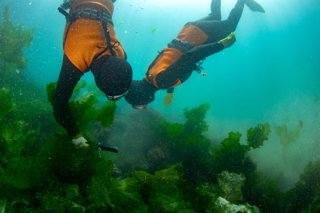
Working with marine biologists at the National Taiwan University and Liverpool University, Niki aims to find out more about what is happening off the coast of Jeju in order to help answer the Haenyeo’s questions.
“There is a real concern about the impact the decline on what can be harvested is having on the Haenyeo’s livelihood. Where there is less to harvest they get less income, which means they need to work more on the farms. However farm work is much more strenuous for them in their 60s, 70s and 80s than diving is."
A key element of Niki’s project is being able to provide the Haenyeo with the scientific data to go alongside their own wealth of knowledge, to be able to speak with authority on how their environment is being impacted by increasing pressures of tourism and pollution.
“Pollution is a major factor for why we’re seeing the decline, particularly in the kelp. The government is keen to develop sustainable tourism however when a storm system comes through there is significant runoff from these resorts. Because the culture of Jeju-haenyeo is on the UNESCO List of Intangible Cultural Heritage, they are in a strong position when it comes to speaking about threats to their livelihood."
Looking ahead to 2025, Niki is planning to return to Jeju to share the results of the 3D scan with the Haenyeo. This scan, alongside the imagery and documentation of the Haenyeo’s knowledge will create an invaluable record of the environment off the Jeju coast, providing evidence to support calls for it’s preservation and a baseline from which to monitor future change.
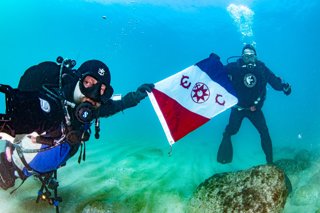
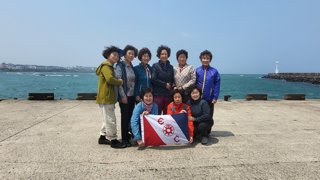
Ralph Brown Expedition Award
Professor Niki Alsford's project was supported by the Ralph Brown Expedition Award.
Find out more about the full range of grants available to support students and researchers with their fieldwork.
